Strategies in the e-bus market “cannot be built on fundings”. Our interview with Irizar’s CEO Imanol Rego
Irizar combines a multi-technology approach with a strong selectivity in tendering. The post-Covid recovery is almost complete. Irizar e-mobility? A growing start-up. Zero emission technology? It must become independent from subsidies. Our interview with CEO Imanol Rego
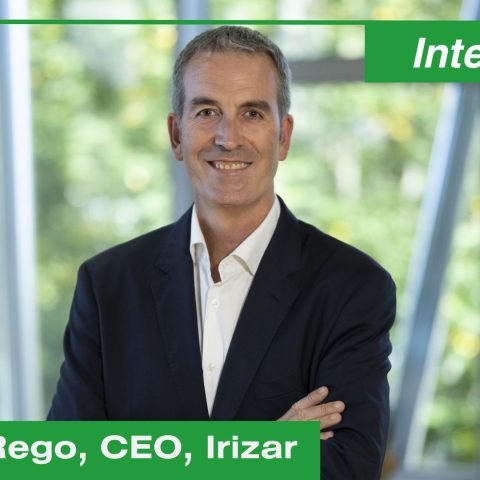
He got to the bus sector, he didn’t go through it. And it shows. Talking to Imanol Rego, from 2020 to 2022 at the helm of Irizar e-mobility, since September 2022 rejoined the group as CEO of Irizar, is like receiving an outside perspective, but well informed about the facts.
He had been working for 13 years for French multinational energy company Schneider Electric. Last assignment? Chief data officer. A position that says a lot about a professional who speaks by numbers (and makes numbers speak). And who has the virtue of being able to put data (of the bus sector, in our case) in a context, actually two: the energetical and the economic-financial one. And who has the courage to say, and this is a rare case, that the e-bus adoption has a duty to become sustainable regardless of subsidies.
«We closed 2023 with 895 million euros turnover, with a 40% increase on 2022 – he says, introducing some background figures -. All the companies within the group grew at the same percentage. We expect 970 million turnover at the end of 2024. We produced 3,068 buses in 2023, in 2024 we forecast to reach 3,700 units. We are investing 20M euros in capacity. Our goal for this year is consolidating Irizar and preparing for future challenges».
We are investing in the development of buses for public transport, but we are not going for all tenders: due to high competition and ‘price wars’, the market is becoming very challenging. We aim to be a ‘boutique’, not a department store
Imanol Rego, CEO, Irizar Group
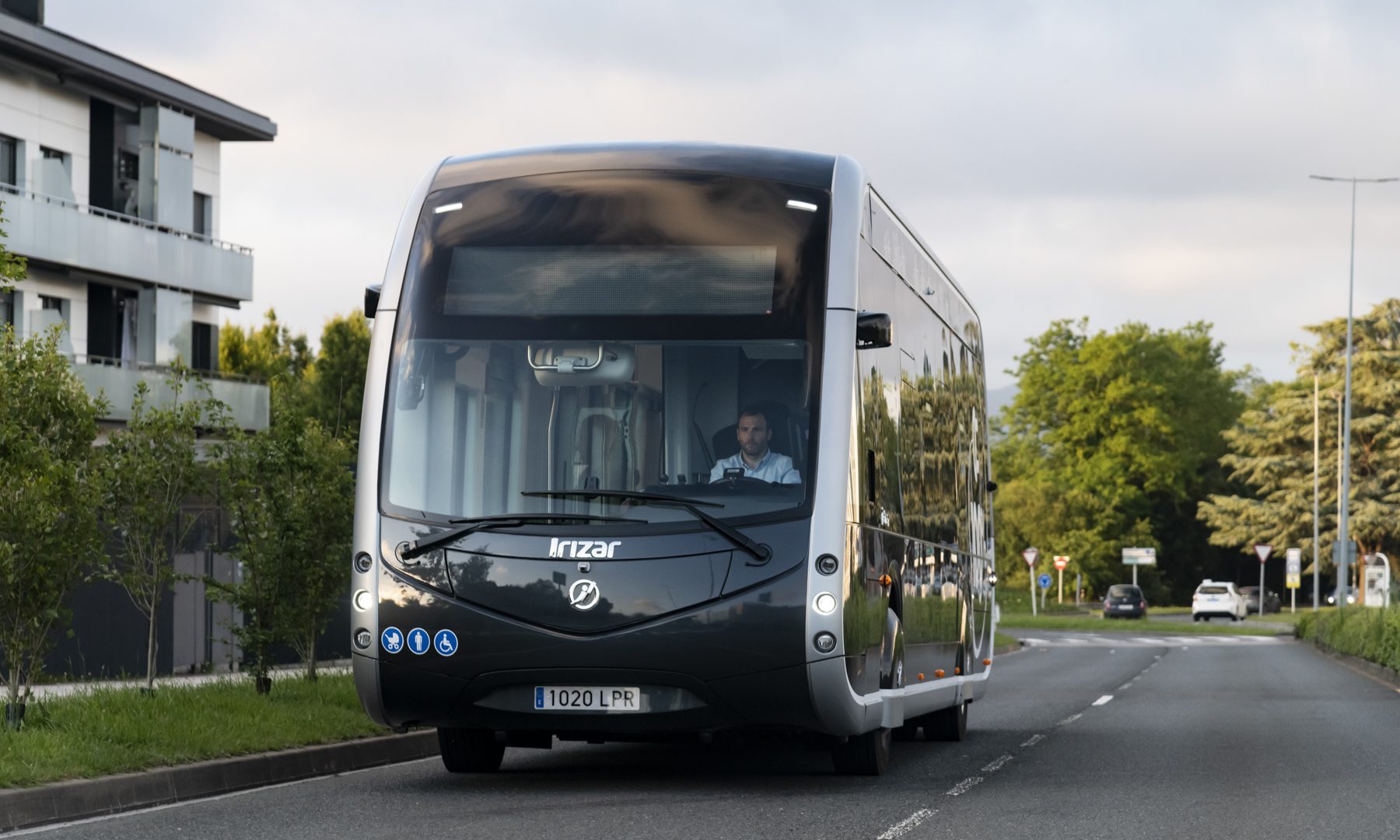
Imanol Rego, how Irizar faced Covid
What about profitability?
«To be very honest, during the pandemic, as most of our partners, we registered losses for three consecutive years: 2020, 2021 and 2022. Our sales volumes went from 3,000 units to 1,500. We had 70 million losses in total at a group level. EBIT became negative. However, from 2023 we are again positive at EBIT-level, and we are now back to a EBITDA that is 70% of that we had in 2019. A value for our group was that of being a cooperative: dividends in good times were kept inside the company and used to fund the losses».
And Irizar e-mobility?
«Irizar e-mobility is a start-up, its volumes are rising sharply and we forecast its EBIT to become positive this year».
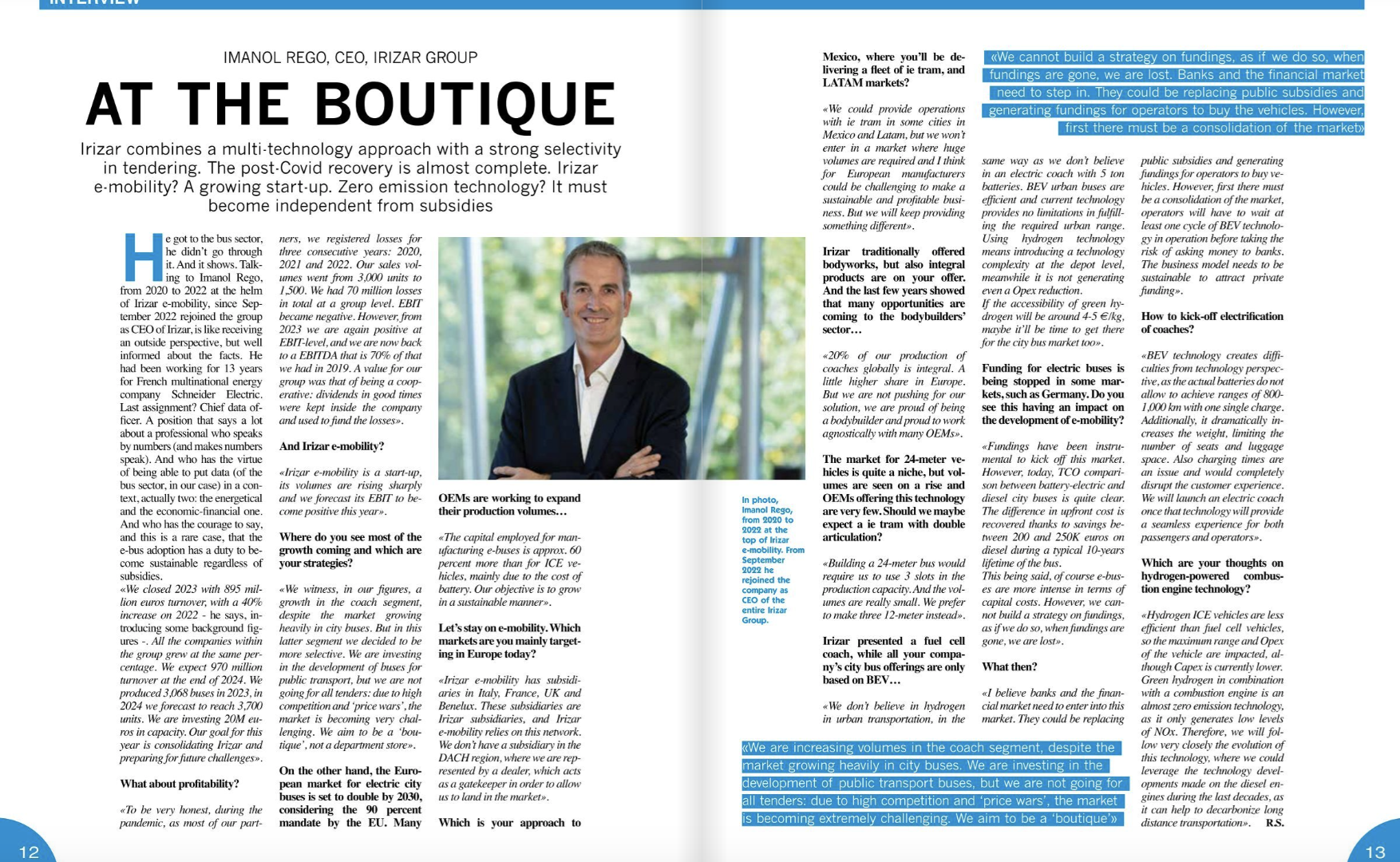
Irizar e-mobility will be selective in bidding to e-bus tenders
Where do you see most of the growth coming and which are your strategies?
«We witness, in our figures, a growth in the coach segment, despite the market growing heavily in city buses. But in this latter segment we decided to be more selective. We are investing in the development of buses for public transport, but we are not going for all tenders: due to high competition and ‘price wars’, the market is becoming very challenging. We aim to be a ‘boutique’, not a department store».
On the other hand, the European market for electric city buses is set to double by 2030, considering the 90 percent mandate by the EU. Many OEMs are working to expand their production volumes…
«The capital employed for manufacturing e-buses is approx. 60 percent more than for ICE vehicles, mainly due to the cost of battery. Our objective is to grow in a sustainable manner».
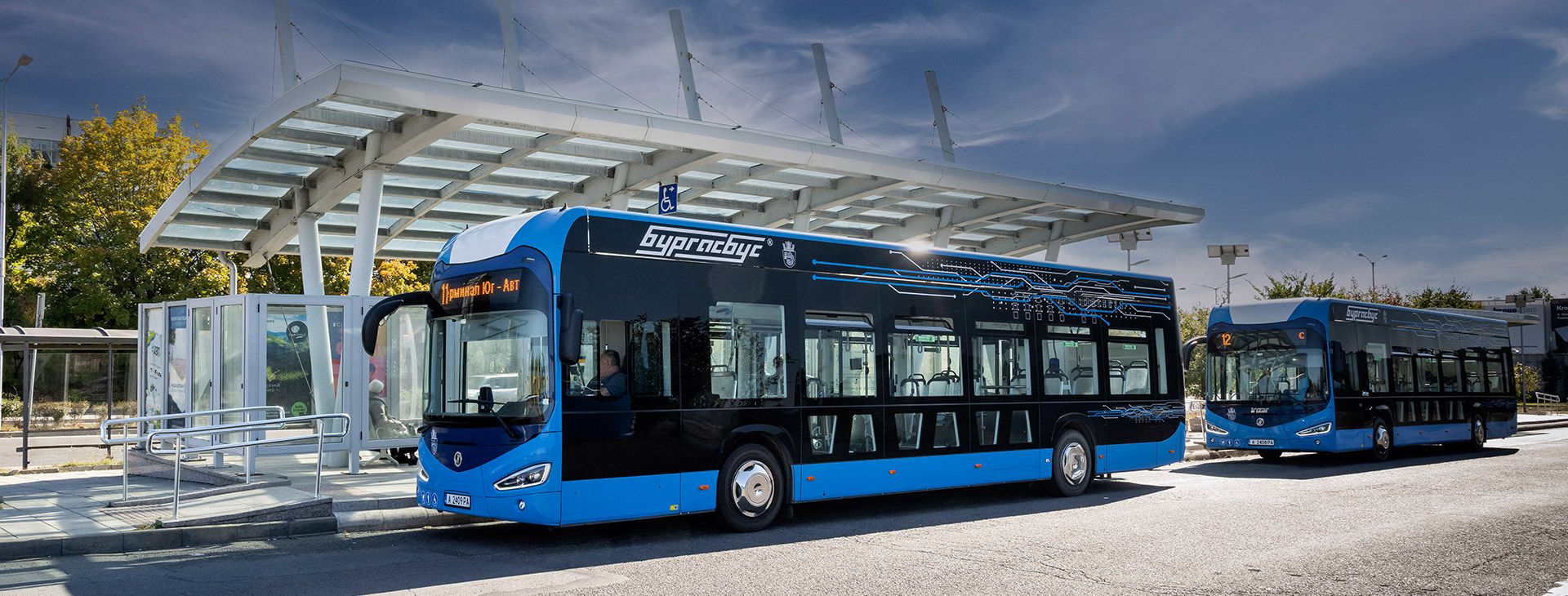
Let’s stay on e-mobility. Which markets are you mainly targeting in Europe today?
«Irizar e-mobility has subsidiaries in Italy, France, UK and Benelux. These subsidiaries are Irizar subsidiaries, and Irizar e-mobility relies on this network. We don’t have a subsidiary in the DACH region, where we are represented by a dealer, which acts as a gatekeeper in order to allow us to land in the market».
Which is your approach to Mexico, where you’ll be delivering a fleet of ie tram, and LATAM markets?
«We could provide operations with ie tram in some cities in Mexico and Latam, but we won’t enter in a market where huge volumes are required and I think for European manufacturers could be challenging to make a sustainable and profitable business. But we will keep providing something different».
Fundings have been instrumental to kick off this market. However, today, TCO comparison between battery-electric and diesel city buses is quite clear. The difference in upfront cost is recovered thanks to savings between 200 and 250K euros on diesel during a typical 10-years lifetime of the bus. We cannot build a strategy on fundings, as if we do so, when fundings are gone, we are lost. Banks and the financial market need to enter into this market. They could be replacing public subsidies and generating fundings for operators to buy vehicles.
Imanol Rego, CEO, Irizar Group
Imanol Rego: Irizar between bodybuilder and OEM’s identities
Irizar traditionally offered bodyworks, but also integral products are on your offer. And the last few years showed that many opportunities are coming to the bodybuilders’ sector…
«20% of our production of coaches globally is integral. A little higher share in Europe. But we are not pushing for our solution, we are proud of being a bodybuilder and proud to work agnostically with many OEMs».
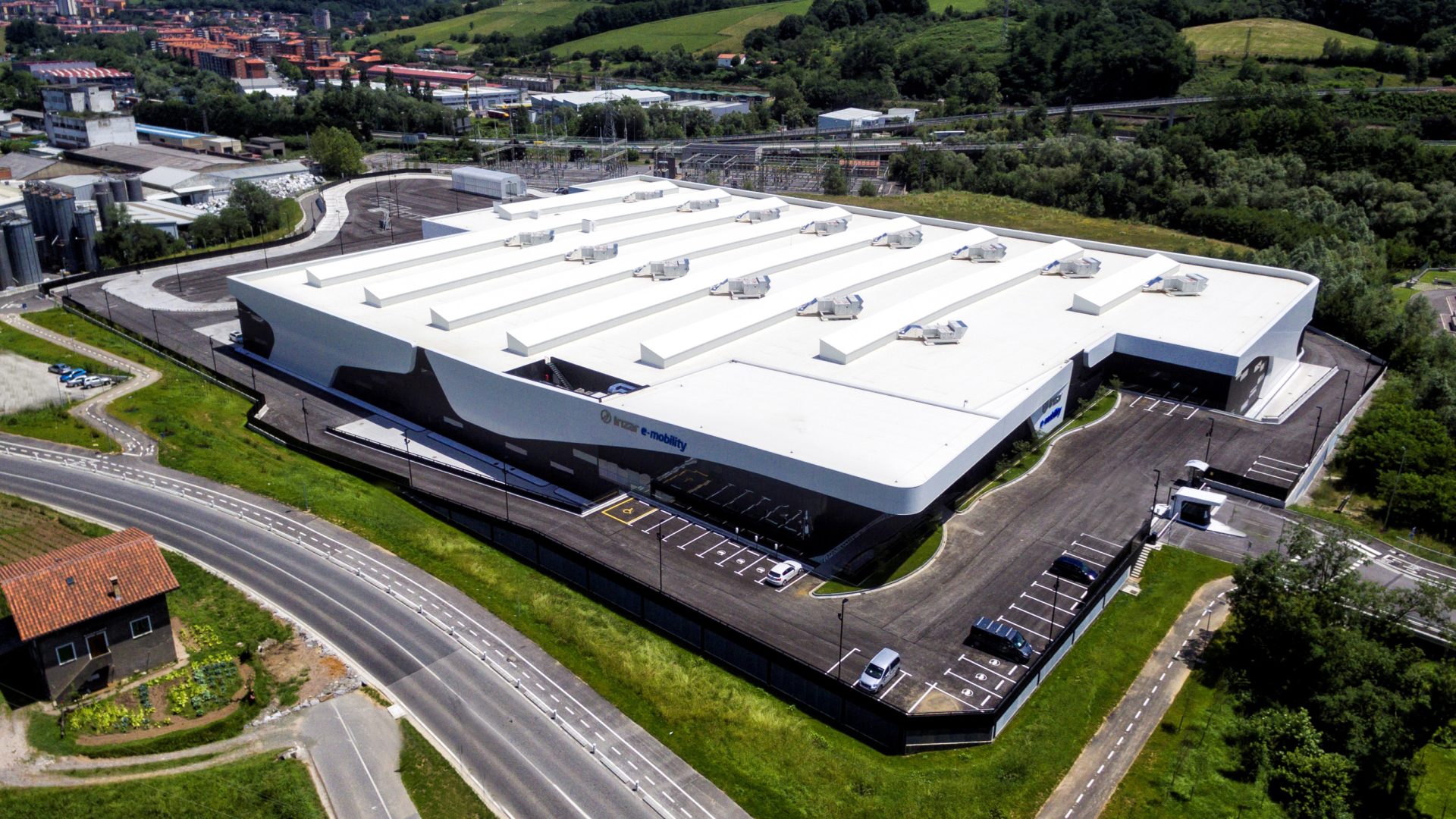
The market for 24-meter vehicles is quite a niche, but volumes are seen on a rise and OEMs offering this technology are very few. Should we maybe expect a ie tram with double articulation?
«Building a 24-meter bus would require us to use 3 slots in the production capacity. And the volumes are really small. We prefer to make three 12-meter instead».
Irizar presented a fuel cell coach at Busworld Europe 2023, while all your company’s city bus offerings are only based on BEV…
«We don’t believe in hydrogen in urban transportation, in the same way as we don’t believe in an electric coach with 5 ton batteries. BEV urban buses are efficient and current technology provides no limitations in fulfilling the required urban range. Using hydrogen technology means introducing a technology complexity at the depot level, meanwhile it is not generating even a Opex reduction.
If the accessibility of green hydrogen will be around 4-5 €/kg, maybe it’ll be time to get there for the city bus market too».
E-mobility should become independent from subsidies
Funding for electric buses is being stopped in some markets, such as Germany. Do you see this having an impact on the development of e-mobility?
«Fundings have been instrumental to kick off this market. However, today, TCO comparison between battery-electric and diesel city buses is quite clear. The difference in upfront cost is recovered thanks to savings between 200 and 250K euros on diesel during a typical 10-years lifetime of the bus.
This being said, of course e-buses are more intense in terms of capital costs. However, we cannot build a strategy on fundings, as if we do so, when fundings are gone, we are lost».
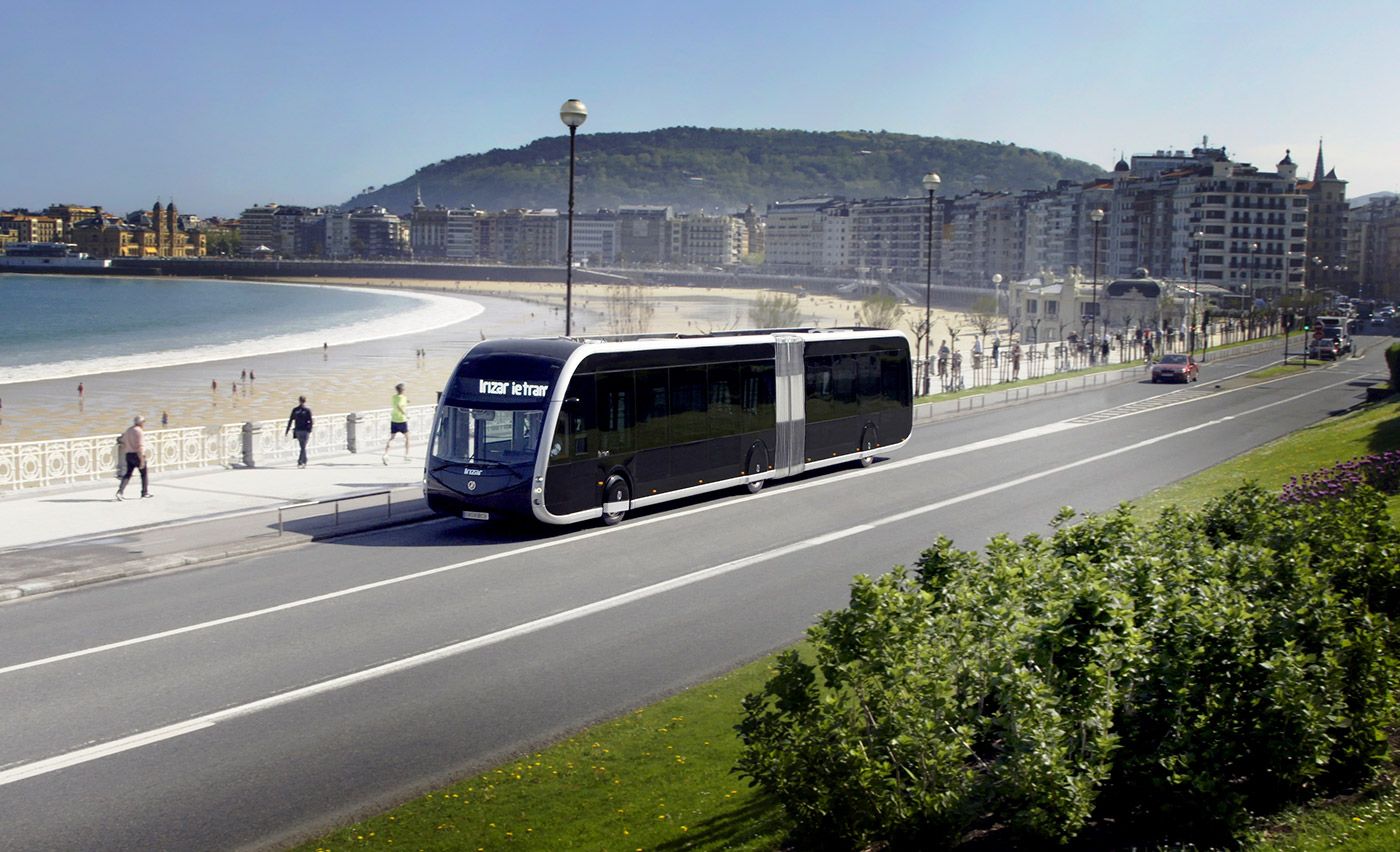
What then?
«I believe banks and the financial market need to enter into this market. They could be replacing public subsidies and generating fundings for operators to buy vehicles. However, first there must be a consolidation of the market, operators will have to wait at least one cycle of BEV technology in operation before taking the risk of asking money to banks. The business model needs to be sustainable to attract private funding».
We don’t believe in hydrogen in urban transportation, in the same way as we don’t believe in an electric coach with 5 ton batteries. BEV urban buses are efficient and current technology provides no limitations in fulfilling the required urban range. Using hydrogen technology means introducing a technology complexity at the depot level, meanwhile it is not generating even a Opex reduction.
Imanol Rego, CEO, Irizar Group
Imanol Rego, Irizar, on the electrification of coaches
How to kick-off electrification of coaches?
«BEV technology creates difficulties from technology perspective, as the actual batteries do not allow to achieve ranges of 800-1,000 km with one single charge. Additionally, it dramatically increases the weight, limiting the number of seats and luggage space. Also charging times are an issue and would completely disrupt the customer experience. We will launch an electric coach once that technology will provide a seamless experience for both passengers and operators».
Which are your thoughts on hydrogen-powered combustion engine technology?
«Hydrogen ICE vehicles are less efficient than fuel cell vehicles, so the maximum range and Opex of the vehicle are impacted, although Capex is currently lower.
Green hydrogen in combination with a combustion engine is an almost zero emission technology, as it only generates low levels of NOx. Therefore, we will follow very closely the evolution of this technology, where we could leverage the technology developments made on the diesel engines during the last decades, as it can help to decarbonize long distance transportation».








